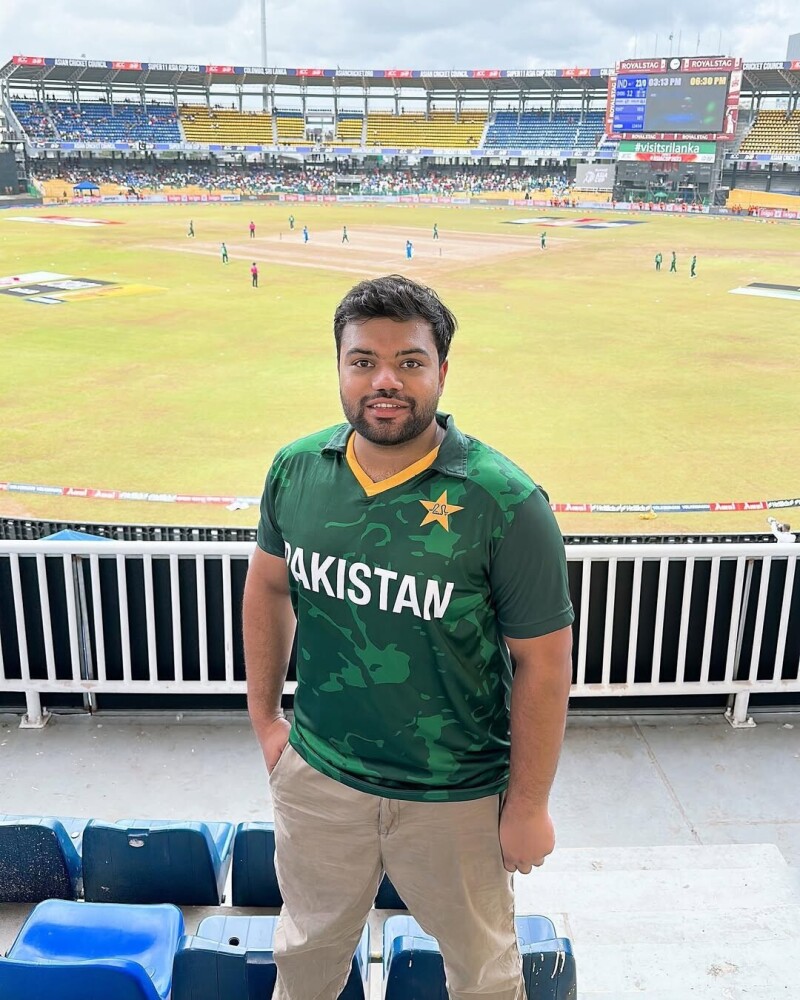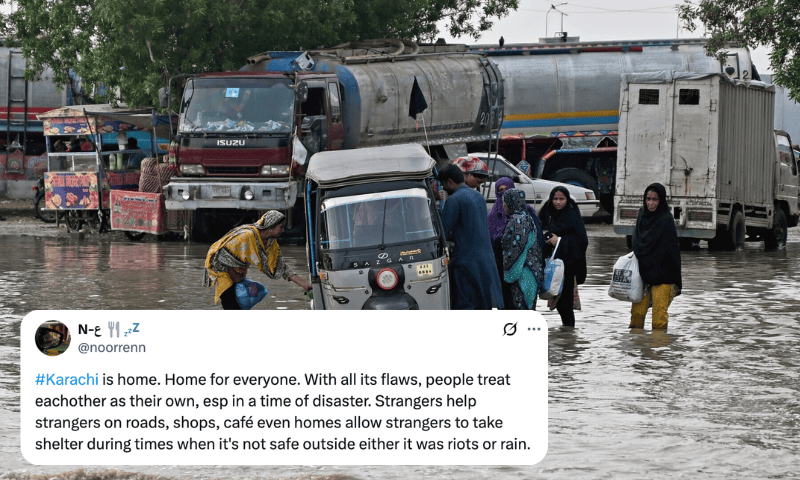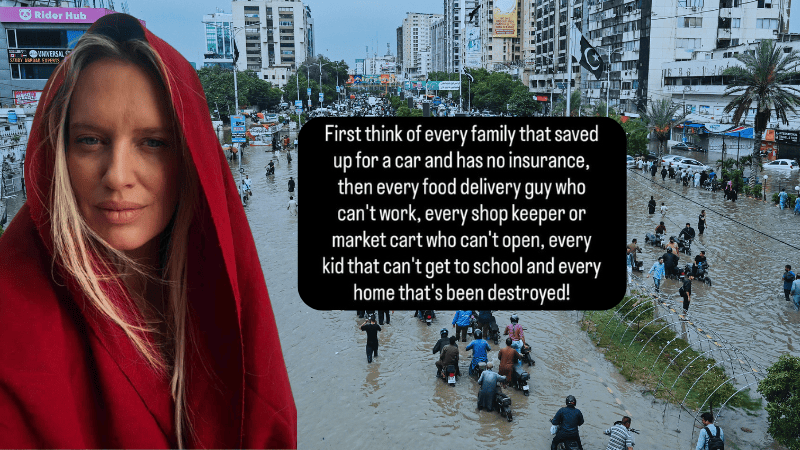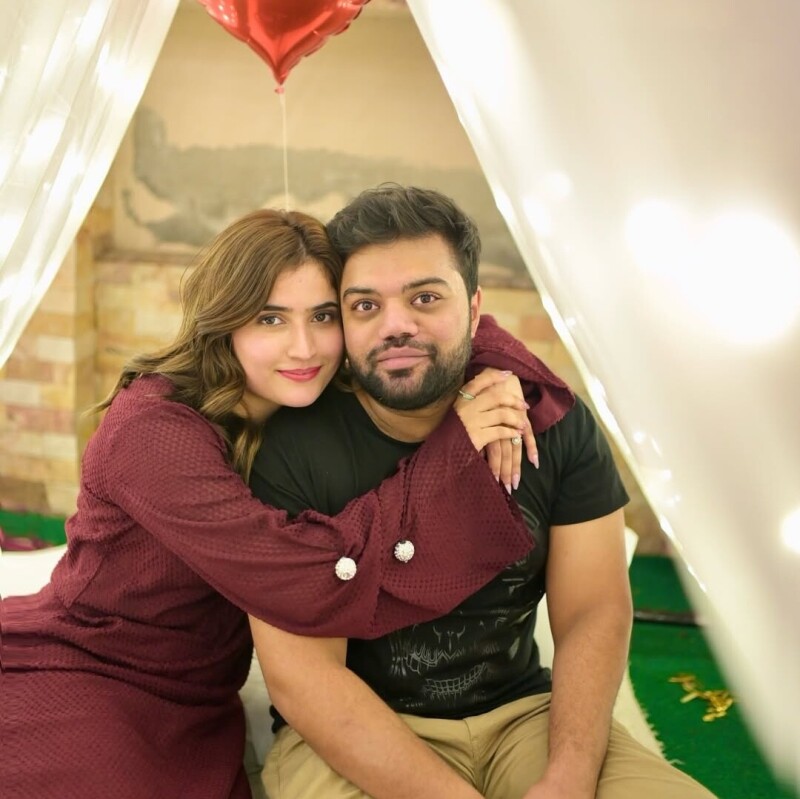Producer Omer Paracha wants to bring Hollywood to Pakistan
Omer Paracha walks over to his garden, where I’ve been seated by the house’s security. “I hope you don’t mind,” he says, telling me that with elders in the family, they’re taking every precaution possible regarding Covid-19. Of course, I don’t mind.
Omer, a young producer from Hollywood, whose debut film — Echo Boomers starring Alex Pettyfer, Patrick Schwarzenegger and Michael Shannon came out last year — seems nothing like your average showbiz producer. He doesn’t walk the walk, or talk the talk of a know-it-all bigshot who’s got it made. There’s a sense of untarnished innocence in the way he explains himself, that’s not really there in the industry. His simplicity, mind you, does not mean that there’s a lack of perspicacity.
A graduate of Lynn University, Florida, where he did his Bachelors and Masters in multimedia and design, Omer learned filmmaking before venturing into production.
Like his elder brother, Habib Paracha, who has produced several films in Hollywood, and whose interview Icon carried last year, Omer doesn’t want to just do films. He has a bigger plan in the works.
The young producer of Monstrous and Afterward, set for release between this and next year, Omer Paracha is slowly putting in place plans to make a bridge between Pakistani and Hollywood cinema
“Echo Boomers was my stepping stone to get into the industry,” he says with a sense of candid calmness. “I’m, hopefully, stepping into bigger features.”

Echo Boomers is about five college graduates who, struck down by the debt and bad economy in America, rob the rich (who are insured, by the way) as a way to get even. The film, surprisingly, has engaging performances from Patrick Schwarzenegger (Arnold Schwarzenegger’s son) and Michael Shannon (The Shape of Water, 99 Homes, General Zod from Man of Steel), with a fresh twist of perspective. To the youngsters in the film, it was more about making a statement of the injustices, rather than just stealing, Omer explains. “The film has a millennial-meets-Gen-Z vibe to it,” he says, clarifying that, since the characters are dealing with deep personal problems, the heists felt like a release.
“This was a true story. This actually happened in Chicago to people, they’re in jail now.” The director, Seth Savory, Omer tells me, knew them.
“I guess, I found my niche in realistic stories,” he says, not that he’s saying no to more fictional fare. His next film, in fact, is Monstrous, a horror set in the 1920s, starring Christina Ricci. It’s about a single mother who runs away from an abusive husband and contends with supernatural forces, he explains. The film is in post-production.

Taking out his phone, Omer plays me the sizzle-teaser of the film that’s made for festivals. The era really gives the film a distinctive visual appeal, unlike routine horror films.
Like Echo Boomers, the project was brought to Omer by a friend, and Ricci was already attached when he came on board, he says. “I have been a fan since her Casper days,” he laughs.
Immediately after Monstrous is Afterward, his third film that’s now on the floors, starring Aaron Eckhart (Thank You for Smoking, The Dark Knight), Terrance Howard (Iron Man, Hustle and Flow) and George Lopez (Spy Next Door, Rio).
“It’s a thriller about a man who loses his wife and child in an accident.” There’s a twist that, Omer explains, unfortunately for the time being, remains confidential.
Did Habib, his brother who already has five films to his credit, inspire him to become a producer, or was it his own, conscious decision?
“Was it a conscious decision to produce films? Yes. It wasn’t something my brother helped with in any way. He was doing his own thing, but I made my own connections.”
A few weeks later, we meet again at his place, this time in a room that is pulling double-duty as a temporary placeholder for renovations or shifting (I didn’t feel it polite to ask). Standing at one end of the room is a heavy-duty tripod and, at the other end, some fishing equipment. The help shifted stuff for Omer’s other brother while we discussed Zack Snyder’s four-hour cut of the Justice League.

During the conversation, I realise that Omer is into comic book mythologies. He would like to produce a movie from a high-profile comic book character, he says, showing me concepts he’s already cooking up with fellow partners. His question, though, is why isn’t anyone doing high-profile films in Pakistan?
Despite explaining the dire circumstances of the industry and the creative deficits therein, I have no answer for his simple question. Omer has a hard time believing why we’re not able to deliver stories that reach out to the world.
Again, taking out his phone like the last time, he shows me a commercial he directed for Paraval, his fashion outlet in the US. (Fun-fact, he interjects before playing the clip: the opening of his brand’s Los Angeles store led to an association that launched Echo Boomers).
The minute-long fashion film was shot on a RED camera, and had every bit of the spiffy zeal one sees in a high-profile fashion commercial in Pakistan. Only, it was made at a fraction of the cost.
Omer suggests that since we claim not to have international-level talent working technical jobs in the film business, why not create a bridge between Hollywood and Pakistan, where technicians are brought in to train people?
The idea is noble, I tell him, and all it needs is the right push. He says that that’s his intention all along.
“I want to make a merger where I can bring Hollywood to Pakistan, and do movies where Hollywood and Pakistani cinema ties together. At the end of the day, there is such a big market for multicultural films, so why can’t we work together as one industry?” he questions.

“I’m not just talking about simply learning from Hollywood. The conversation should be about gelling two cultures here. It’s about bringing two worlds together.”
Omer then confides about another project he’s developing — a strong story on female rights, injustice and empowerment. The screenplay, whose fast-paced first act I’ve read, is currently being written by Omer and a screenwriter from Hollywood. The still-untitled film, about a woman standing up for herself and others, will be shot in Pakistan and the US.
“Without giving too much away,” he tells me, “it’s about getting an important issue out to the world. It’s a sensitive topic and a matter of big relevance.”
Omer wants to direct a film eventually, though it might not be this particular film. With Monstrous and Afterward set for release between this and next year (depending on how Covid-19 turns out), the young producer is slowly realising his plans to make a bridge between Pakistan and Hollywood.
It’s a huge undertaking, but he’s in no hurry, he tells me with the same calm earnestness that I heard in our first conversation. From the looks of it, it’s just a matter of time before things start coming together.
Originally published in Dawn, ICON, April 18th, 2021














Comments